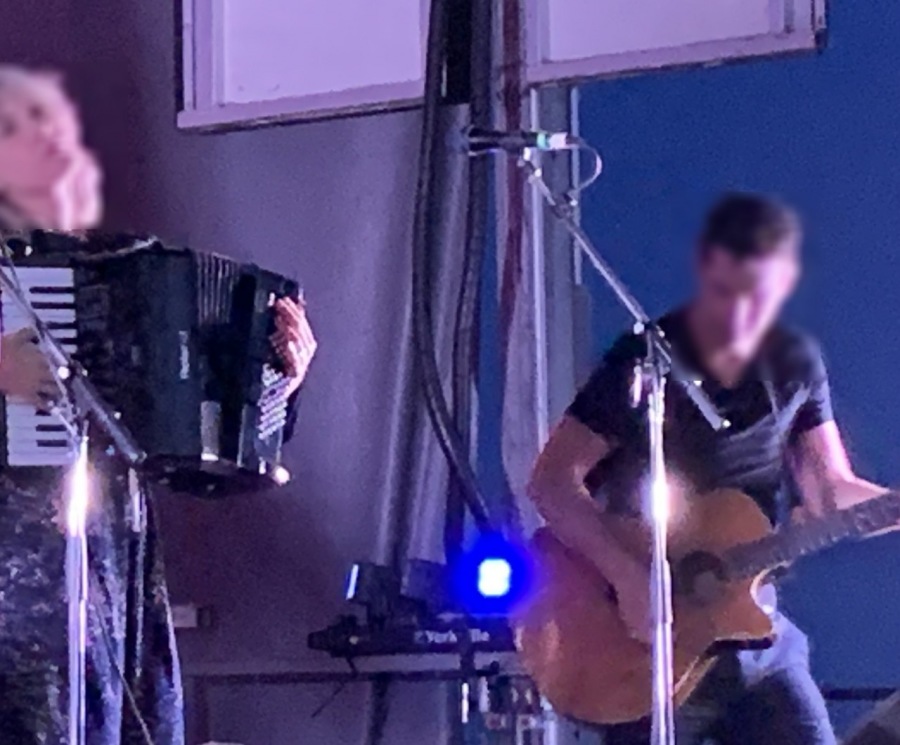Music has power to enchant even the roughest of people
Many of us love music but like me cannot carry a tune to save their lives. As I am typing, I am listening to The Hits of ABBA performed by the Royal Philharmonic Orchestra. I have great admiration for those who can play and sing and who enjoy music “Music has the power to enchant even the roughest of people. This saying comes from the play The Mourning Bride, by William Congreve written in 1697, and today we know the saying as: “Music has the power to soothe the savage beast.” But music can do more than that. a new report from the Global Council on Brain Health (GCBH) concludes that music can potentially stimulate brain health, manage stress, and help treat brain health conditions as varied as dementia, stroke, and Parkinson’s disease. Here are some takeaways from their research.
1. Music is a powerful way to stimulate your brain.
2. Music impacts different regions of the brain including those involved in hearing/listening, movement, attention, language, emotion, memory, and thinking skills.
3. Music engages multiple parts of the brain and helps them work together.
4. Music can help people recall meaningful memories and emotions.
5. Music is important to promote mental well-being.
6. Any style or type of music can be beneficial for the brain. It is important to consider a person’s musical preferences to maximize music’s potential to promote mental well-being for that person.
7. Playing music, singing, or dancing together is a good way to increase social connections with other people and reduce loneliness, which is good for brain health.
8. Music and dance are linked. Music motivates movement. Dance and other forms of physical activity are good for brain health.
9. Learning to sing a new song, learning to play an instrument, or learning to dance stimulates people’s thinking skills
10. Music allows us to change our emotional state and can often improve mood.
11. Listening to music can help you manage stress.
12. Music can have positive effects on the body and mind, including helping to regulate blood pressure and heart rate.
13. Sleep is important for brain health, and music has been shown to help improve the quality and length of sleep.
Music as Treatment for Diseases or Injuries Causing Cognitive Impairment
1. The ability to dance, sing, and listen to music or play a musical instrument can be preserved in people with dementia, even during later stages of the diseases.
2. Music for persons living with dementia can improve mood and quality of life and can reduce anxiety and depression. There is mixed evidence that music may also reduce agitation. Ongoing therapy with music the person likes is necessary to maintain the benefits.
3. Music provides a way for people with dementia to share positive experiences with others and can be a good way to connect with their caregivers.
4. There is strong evidence that a specialized music-based treatment can improve movement in patients with Parkinson’s disease and stroke, including improvements in walking and talking.
5. There is strong evidence that music helps recovery from stroke. Singing has been shown to help recover the loss of language functions in people due to stroke.
Recommendations for Individuals:
1. Incorporate music in your life. Music may improve well-being including quality of life. Listening to music provides a resource for enjoyment and entertainment, especially when shared with families and loved ones.
2. Dance, sing or move to the music. These activities not only provide physical exercise, but they can also relieve stress, build social connections, and are fun ways to stimulate your brain!
3. Enjoy listening to familiar music that comforts you and evokes positive memories and associations.
4. Try listening to new music. While listening to music that you know and like tends to cause the strongest brain response and dopamine release, unfamiliar melodies may stimulate your brain, while providing a new source of pleasure as you get used to hearing them.
5. Listen to music to encourage yourself to exercise. Music can provide a mental boost and help motivate you to move your body. And it can hasten clearance of lactic acid buildup during recovery from vigorous exercise.
6. Don’t delay getting your hearing checked if you notice you are having trouble hearing. Correcting hearing loss as soon as possible is important for maintaining brain health and preserving cognitive function (as well as continuing to enjoy the music!).
7. Make music yourself! Music-making can include both singing and playing an instrument. Learning to play a musical instrument can offer a sense of mastery and self-esteem while enhancing brain activity. Singing may be the simplest way to get started.
8. Try making music with other people. Singing or playing music with and for others can generate positive feedback that enhances self-esteem and provides a satisfying sense of accomplishment. It also can create friendly new bonds with your fellow performers. The benefit of making music with others is not limited to performing music; it also can reduce feelings of isolation.
9. Try joining or forming a music-making group, such as a community choir, band, or orchestra. Making music in groups creates cohesion and a sense of belonging that can promote your mental well-being.
10. If you are unhappy, try listening to or making music to improve your mood or relieve feelings of depression.
Recommendations for Communities:
1. Support or start a community-based music-making group such as a choir. Music-making activities, such as choirs and writing songs as a group, have shown to increase mental well-being for group members.
2. Do not think music-making is limited to formal, in-person organizations. Facilitating connections with one or more people through virtual platforms and social media also can be beneficial.

Articles from Royce Shook
View blog
5 - Fifth Important Lesson - Giving When it Counts. · My thanks to Aubrey and Ron for the following ...

2. - Second Important Lesson - Pickup in the Rain · One night, at 11:30 p.m., an older African Ameri ...

Please note that these statements are intended to be humorous and based on stereotypes I have heard ...
Related professionals
You may be interested in these jobs
-
Anaesthesia Assistant
Found in: Talent CA C2 - 4 days ago
William Osler Health System Brampton, Canada Full timeJob Description · The Anaesthesia Assistant (AA) works closely with anesthesiologists as an integral member of the anesthesia care team to provide clinical and technical support to the operating room, peri-operative/post-operative, labour and delivery and all other areas where an ...
-
Head of Account Management/Responsable de la gestion des comptes
Found in: Talent CA C2 - 2 days ago
Global Step Montreal, CanadaPosition Types: Head of Account Management/Responsable de la gestion des comptes Position Locations: Canada City: Montreal - Canada Experience: 10+ years Who We Are · You name it, we've done it. From Games and Digital Products Development to Localization, Level Design, ...
-
Registered Nurse
Found in: Talent CA C2 - 2 days ago
Phoenix Society Surrey, CanadaOrganizational Status The Phoenix Society is a multi-service agency located in the Lower Mainland of British Columbia dedicated to providing accessible services and opportunities to people who face barriers related to addiction, mental health, housing, education, criminal justice ...




Comments
Jerry Fletcher
3 years ago #2
Ken Boddie
3 years ago #1